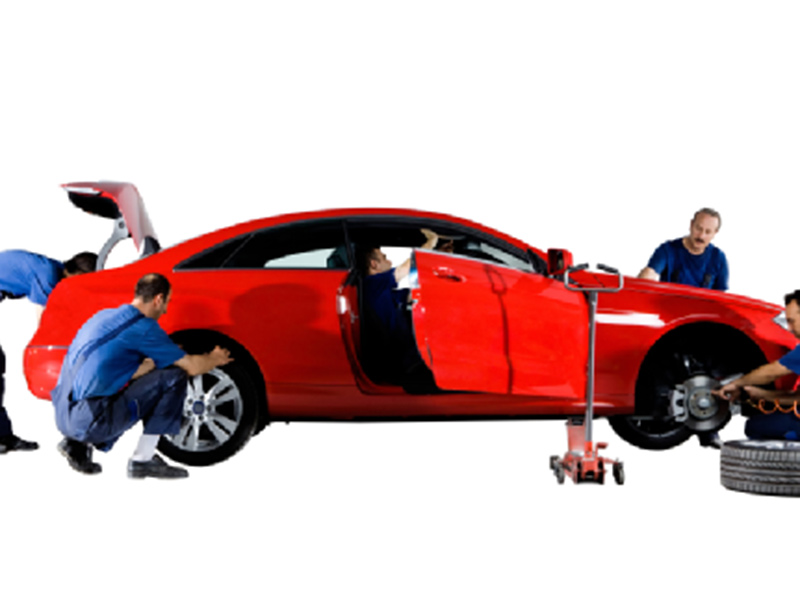All Categories
Featured
Common Car Issues and How to Prevent Them: Expert Tips for Vehicle Longevity
Owning a vehicle comes with the responsibility of maintaining it to guarantee its lifespan and performance. While many vehicle issues are inevitable over time, regular upkeep and care can avoid a majority of frequent problems. Here’s a breakdown at common car issues and effective prevention tips to keep your car running smoothly for the long term.Flat or Bald Tires Tires are one of the most frequent causes of breakdowns, particularly when they’re low on air or have uneven wear. Worn-out tires reduce traction, affecting vehicle control and safety, especially in poor weather conditions. Prevention: Keep your tires at the correct pressure by checking the pressure regularly, at least every 30 days and before extended drives. Switch your tires every 5,000 to 7,500 miles to ensure even wear, and replace tires that have less than 2/32 inches of tread depth.
Brake Wear and Tear Brakes are a crucial safety feature, and neglecting brake maintenance can lead to dangerous driving conditions. If you notice squealing, grinding, or decreased braking power, it’s time to address the issue. Prevention: Have your brakes inspected regularly—at least annually or as suggested by your manufacturer. Replace brake pads when they start to show signs of wear and make sure brake fluid levels are adequate to avoid potential issues.
Motor Overheating An overheated engine can cause severe damage, from damaged components to complete engine failure. Overheating is typically caused by a cooling system issue, low coolant levels, or a damaged radiator. Prevention: Monitor your coolant levels and top up when necessary. Regularly check hoses and belts for cracks or leaks and flush the radiator every 30,000 miles (or as advised by your vehicle’s manufacturer). If your vehicle starts to overheat, turn off the AC and pull over to avoid further damage.
Gearbox Problems Transmission issues can be costly to fix, and often result in slippage, rough shifting, or strange noises when changing gears. If ignored, transmission failures can leave you stranded and may require lengthy repairs. Prevention: Keep your transmission fluid fresh and topped off. Most manufacturers recommend changing the fluid every 30,000 to 60,000 miles, depending on the vehicle. Also, avoid overloading your car and try to drive gently, as aggressive acceleration and braking can strain the transmission.
Dead Battery A dead or weak battery is one of the most frustrating car issues, often resulting in a no-start situation. Extreme temperatures, old batteries, and leaving electrical components on can cause the battery to drain. Prevention: Test your battery at least twice a year, especially if it’s over three years old. Clean corrosion off the battery terminals, and turn off all electrical components (lights, radio) when you leave the vehicle. If you experience that your car takes longer to start or you hear a clicking sound, it may be time for a new battery.
Faulty Alternator The alternator charges your car’s battery and powers electrical systems when the engine is running. A faulty alternator can cause dimming lights, strange noises, or electrical malfunctions. Prevention: Have the alternator checked during routine maintenance. If you notice issues like flickering headlights or trouble starting the car, it could be a sign of a failing alternator, and getting it checked early can save you from being stranded.
Suspension System Issues The suspension system, including shocks and struts, is responsible for a smooth and stable ride. If you notice that your vehicle is bouncing excessively or the ride feels unusually rough, the suspension could be worn out. Prevention: Get your suspension checked during routine maintenance, particularly if you regularly drive on rough roads. Worn suspension parts can affect handling and alignment, so it’s important to address issues before they escalate.
Oil Leaks Oil leaks are not uncommon, and they can lead to engine damage if left unaddressed. Leaks usually occur due to worn-out gaskets, seals, or hoses. Prevention: Regularly check your oil level and look for any signs of oil spots beneath your car. Have your oil changed at regular intervals, and during oil changes, ask the technician to inspect seals and gaskets for any leaks or wear.

Electrical System Failures Electrical issues in your vehicle can manifest in several ways, from malfunctioning lights and dashboard indicators to complete loss of power. These issues are often related to a faulty alternator, fuses, or wiring problems. Prevention: Inspect the battery and alternator regularly, as these components are key to your car’s electrical system. Make sure to replace any blown fuses and inspect wiring for wear or damage.
Clogged Fuel Injectors Dirty or clogged fuel injectors can lead to poor engine performance, reduced fuel efficiency, and difficulty starting the engine. Prevention: Use high-quality fuel, and periodically clean the fuel injectors using a fuel injector cleaner. Additionally, replace the fuel filter as recommended to ensure smooth fuel flow.
Additional Advice for Preventing Car Issues Follow the Manufacturer’s Maintenance Schedule: Your car’s owner manual will provide a maintenance schedule specific to your vehicle. Following it ensures all systems are inspected and maintained regularly.
Regular Fluid Checks: Keep all fluids (oil, brake fluid, transmission fluid, coolant, etc.) topped off and change them when needed. Neglecting fluid levels can lead to overheating, poor performance, and engine failure.
Listen to Your Car: If something feels or sounds off, trust your instincts. Addressing small issues early can prevent them from escalating into bigger, more expensive problems.
By staying proactive with regular maintenance and taking care of minor repairs promptly, you can extend the lifespan of your vehicle, improve safety, and avoid costly breakdowns. Keep an eye out for common car issues, and use these preventive measures to keep your car in top condition.
Latest Posts
Boost Your Home's Outside with Weathercraft's House siding Solutions
Published May 21, 25
1 min read
Secure Your Financial Investment with Specialist Rain Gutter Installment
Published May 20, 25
1 min read
Choosing the Right Roofing Shade: Influence On Power Efficiency
Published May 19, 25
1 min read